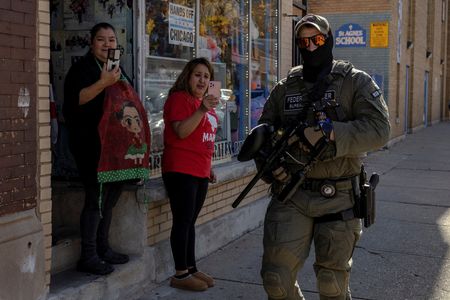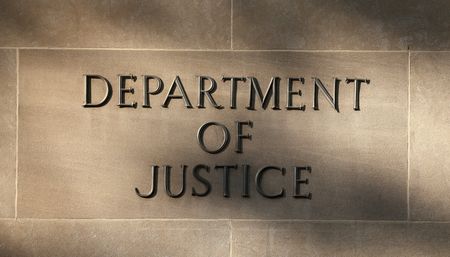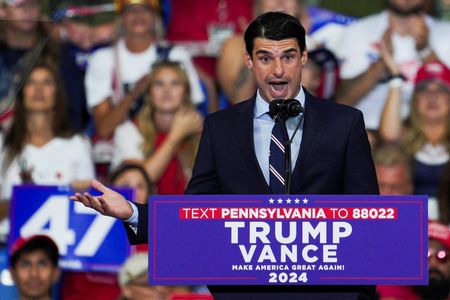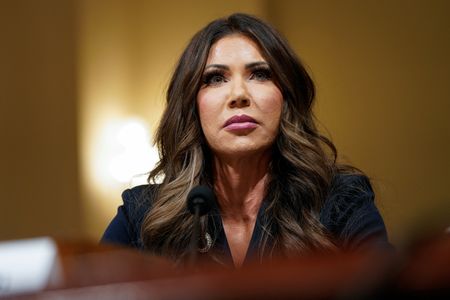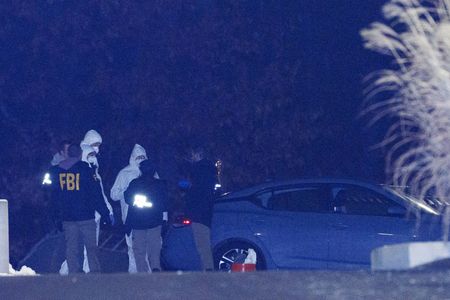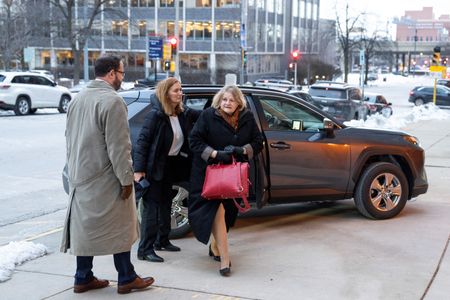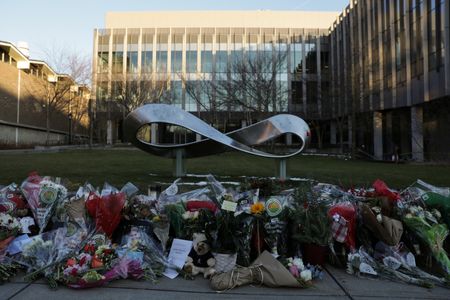By Steve Holland and James Oliphant
WASHINGTON (Reuters) – For four years, the bar at the Trump International Hotel in downtown Washington was the place to be seen for Donald Trump’s circle of allies, supporters and hangers-on, where MAGA hat-wearing patrons sipped $20 martinis and hoped for a glimpse of the president himself.
Trump would often appear in the hotel dining room during his first term that ended in 2021 for a well-done steak and fries, accompanied by his wife, Melania, and a revolving cast of cabinet secretaries, foreign leaders, state governors and high-dollar donors.
The hotel, located in the historic Old Post Office Building less than a mile from the White House, provided Republicans with a safe haven in the largely liberal city.
It also served almost as a shadow White House, where delegations could stay, lobbyists could roam and Trump’s advisers could strategize – all with the revenue going to the Trump Organization, a point of contention for Democrats who decried the set-up as a conflict of interest.
The Trump Organization sold the lease on the 263-room hotel for $375 million in 2022, prompting speculation about which D.C.
watering-hole might take its place as the go-to Republican hangout after Trump returns to power on Monday.
One surprising answer surfaced last week after Trump spent the night in his old hotel, now a Waldorf Astoria, ahead of former President Jimmy Carter’s memorial service.
The Trump family, the Wall Street Journal reported, is in early talks to perhaps re-acquire control of the space.
Even before news of the Trump family’s interest in the property was reported, some Republicans speculated Trump and his allies could return to frequent the hotel anyway because of its history and location.
“There is a good chance that the Waldorf Astoria becomes the place to go for the Trump team because he used to own it and the place is very familiar to his allies,” said Ron Bonjean, a Republican strategist.
However, Bonjean noted that the hotel’s main restaurant, the Bazaar, is now operated by renowned chef Jose Andres, a vocal Trump critic.
Hilton Worldwide, which operates the Waldorf Astoria, did not respond to a request for comment. Representatives for Andres and the Trump Organization also did not comment.
STEAKHOUSES AND PRIVATE CLUBS
Some Republicans who spoke to Reuters suggested that with Trump in office, traditional cocktail lounges and steakhouses may become more popular for informal political networking.
That could mean a boost for restaurants like the Capitol Grille, Joe’s Stone Crab or the Palm, which is owned by a group headed by Tilman Fertitta, who Trump recently named as ambassador to Italy.
The Italian-flavored Cafe Milano in Georgetown, a longtime fixture for D.C. networkers, may also enjoy a surge in interest.
But Nycci Nellis, a food and hospitality expert in Washington, said younger Trump staffers may gravitate to new, hot restaurants such as Osteria Mozza in Georgetown and Minetta Tavern, a French restaurant, in the Union Market area.
A new cafe on Capitol Hill, Butterworth’s, has become popular with Trump supporters. “It has a great vibe,” said a Trump official.
Turning Point USA, the advocacy group that has become a major force in rallying Trump’s political base, will hold a ball the night before his Jan.
20 inauguration at the Salamander Hotel, which is located in southwest Washington near the Jefferson Memorial.
The hotel is offering a “Table 47” dining experience, named after Trump, the 47th president, that costs more than $1,200 per person.
Nellis said the Trump administration may also be inclined to patronize a new set of private clubs, a growing trend in the city.
One such place near the White House called Ned’s Club offers a three-level space and a rooftop restaurant for those willing to pay the initiation fee.
But the qualities such as location and Trump’s imprimatur that gave the Trump International Hotel unprecedented status in Trump’s first four years may be hard to replicate – not to mention that Trump could show up at any time.
Doug Heye, a Republican strategist and Washington veteran, said the president-elect could help decide where his flock gathers during his second term.
“Where Trump goes may send a signal to folks,” Heye said.
(Reporting By Steve Holland and James Oliphant; Additional reporting by Helen Coster and Alexandra Ulmer; Editing by Colleen Jenkins and Deepa Babington)


